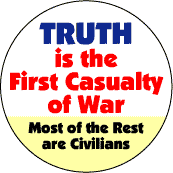How about Nader?Originally posted by j2k4@27 June 2003 - 06:22
Your dismissal of Bush the younger as a capable leader begs the question:
If not him, who?
Your anti-conservative vehemence also invites comparisons between Bush and the last liberal president and current icon, Bill Clinton.
Forgive the pun, but Mr. Clinton's resume is not without a few "stains"-to name a very few:
Sorry j2, but this seems like a weak comparison to me.Your anti-conservative vehemence also invites comparisons between Bush and the last liberal president and current icon, Bill Clinton.
Why not compare Bush to Lincoln, Roosevelt or Washington?
He certainly suffers when judged by higher standards than just Bill Clinton.
As I know you possess more than a passing grasp of American history, it strikes me as a limp defense to limit your comparison to only the most recent of Presidents.







 Reply With Quote
Reply With Quote




Bookmarks